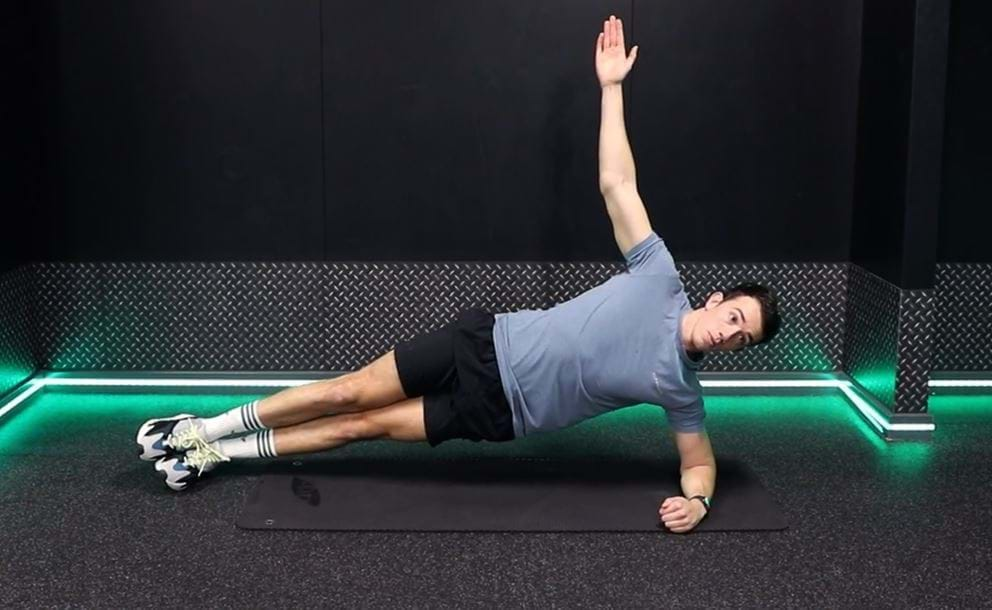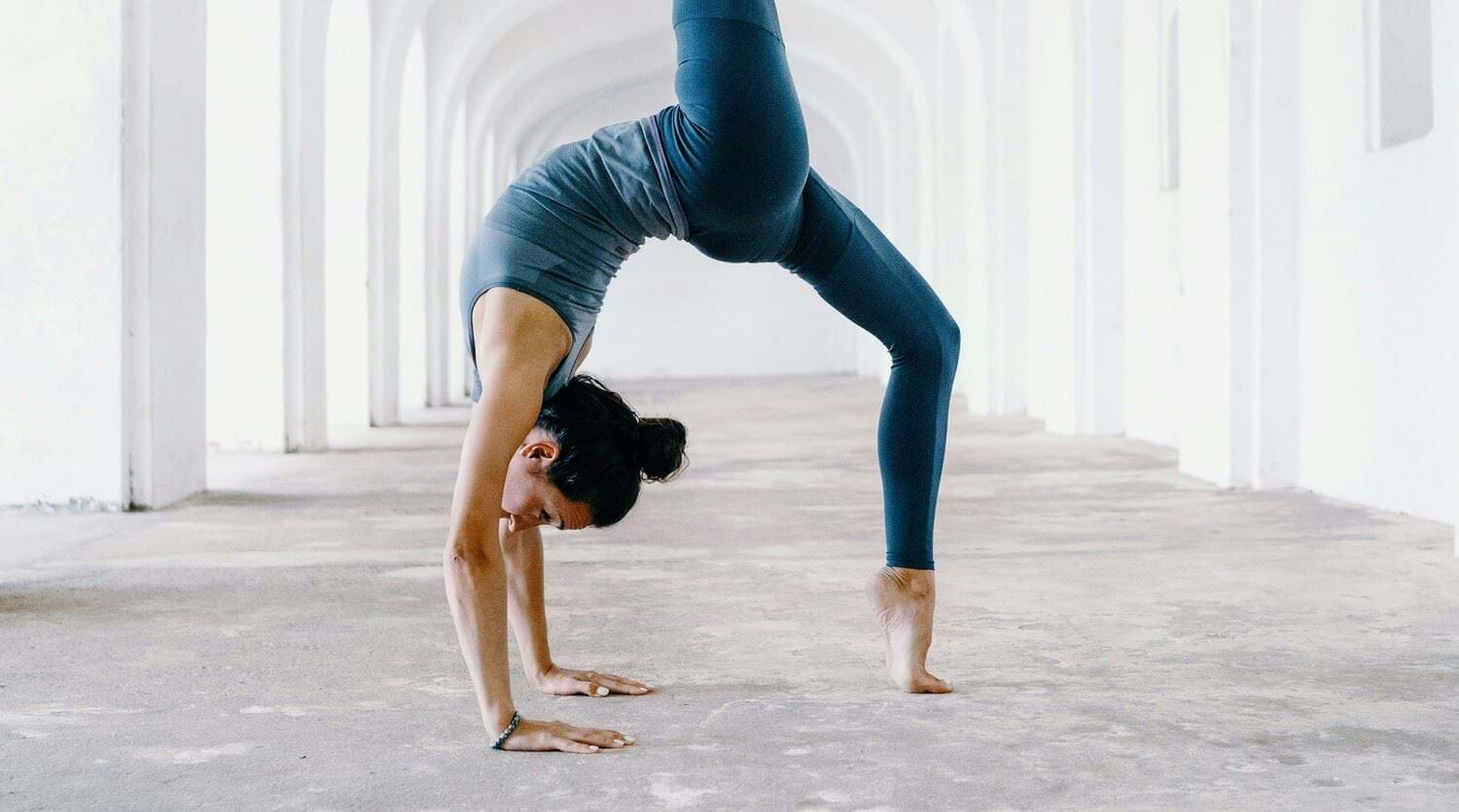Ab Workouts For Beginners

If you search for "ab exercises" on the internet you'll probably come across hundreds of ab exercises to choose from, so it can be a little overwhelming and difficult to figure out which ab workouts are best suited for beginners.
We've created this guide to help inform you about this incredible muscle group, as well as providing some advice about how to strengthen your abs (and even strive for a visible six pack). Read on to the end for an example beginners ab workout to get you started.
What are abs?
The abs are made up of four major muscle groups:
- Rectus abdominis: These are probably the main muscles you'll think of when considering abs - these two bands of muscle run from the sternum down to the pelvis over the front of the stomach. They have a distinctive 'six pack' or 'eight pack' look thanks to bands of connective tissue and these muscles help to flex you forwards.
- External obliques: Positioned on either side of the upper stomach, these muscles help to support your torso as it performs twisting motions.
- Internal obliques: Work with the external obliques to support turning and twisting movements. They're positioned on the lower, outer part of the stomach.
- Transverse abdominis: These muscles sit deep below the obliques, wrapped around the spine and help to stabilise and strengthen the torso.
When working together, these muscles help to move your torso and support upper body motion.
Why should I work out my abs?
For many people, the goal for ab training is to either achieve a flatter-looking stomach or a muscular 'six pack' physique. If that's your objective then great, but there are so many other benefits to strengthening and working out your abs than just how it physically shapes your body. These muscles support your entire upper body. If you play other sports, or enjoy running or weight training for example, building up your core strength will be sure to boost your stability and performance. You'll feel both stronger, and more powerful.
How do beginners get abs?
If 'getting abs' means seeing a visible six pack, then there's no getting around the fact that this look takes a lot of work and perseverance, but if you're willing to put in the time, then you'll both look and feel stronger and more muscular. Incorporating exercises into your workout that focus on the rectus abdominis is the best place to start, and that means movements that flex your pelvis and lower ribs towards and away from each other, like crunches and sit ups. It's also important to include total core strengthening exercises as well, as this will enable you to build a stable, strong foundation for your abs, so make sure to include movements like planks and twists as well.
If you carry weight around your waist then you may not be able to see the effect of your ab training reflected in your physique, but that doesn't mean you don't have strong abs, they might just be hidden from view. To overcome this, you'll need to combine your workouts with a sustainable, healthy diet and aim to reduce your body fat percentage so the sculpted muscles are more visible. For men, this will most likely be between 6-13% and for women, you'll need to lower your body fat to around 14-20%.
Is it okay to work your abs out every day?
As with any kind of training, rest days are essential to building strength and fitness in a healthy way. Your muscles will undergo tension that causes tiny, microscopic tears - it's the process of repair and recovery from these that helps you to become stronger. If you don't allow time for rejuvenation, you could increase the risk of muscle injuries that could set back your training. So make sure to rest your abs for at least 24 hours after giving them a full workout, perhaps instead focusing on gentle stretches or yoga to ease any sore muscles. Check out our 'Why Rest Days Are Important' guide for more information.
What should I eat to get abs?
A healthy diet is an important part of achieving any fitness goal, so it's vital to fuel your body in the best way possible. To strengthen your abs and work towards a six pack, you'll need to supply your muscles and core with the nutrients and energy they need to strengthen and sculpt. If you're aiming for a six pack, you'll also need to make sure your diet focuses on controlling your body fat percentage so your toned muscles are more visible.
In general, we recommend focusing on a nutritionally balanced, well rounded diet plan that includes plenty of fibre, protein and healthy fats. Types of food to consider including as you build up your ab strength include:
- lean protein such as chicken, fish, lentils or chickpeas to help build and maintain muscle growth
- high fibre whole grains like quinoa, oats and barley - they're packed full of vitamins and minerals, can aid in digestion and are filling, helping with your body composition
- heart-healthy fats like salmon, nuts and avocado
- Low calorie, nutrient rich fruit and vegetables such as broccoli, apples and sweet potatoes
Our Nutrition and Diet hub is packed full of advice pieces and healthy recipes that are the perfect accompaniment to a beginners ab training plan.
How to start training your abs
We recommend starting your ab training by integrating ab-focused exercises into your regular workouts, starting with 10 to 15 reps and increasing the intensity over time either by including more sets or by adding additional weights. As your body improves, you can begin to devote entire sessions to focusing solely on your abs, so you can give them your full energy and see greater, faster results.
Crunches are not just a good way to start ab training, but they're also one of the best exercises for building up these muscles. The most effective approach is to focus on slow, controlled movements, rather than solely on increasing your reps, as muscles grow best after spending time under tension. Regular crunches will focus on the upper section of your abs, and reverse crunches will focus on the hard-to-target lower abs. You can find out more about each of these movements in our guide to sit ups.
Other exercises to include are core-strengthening movements such as planks, Russian twists and mountain climbers (as featured in our Functional Ab Workout guide). These will help to strengthen your abs, and also improve your balance and stability.
What is a good ab workout for beginners?
To help you get started, we've come up with a five move ab workout that's both effective and beginner-friendly in building a solid foundation to a strong core.
All you need for this ab workout is a mat so you can try this out at home or in the gym. This workout roughly takes 10-15 minutes.
Watch the video below to see PureGym Insider @peterpuregym perform all the ab exercises in this workout so you can see how to do them and give the workout a go!
Beginner friendly ab workout summary
- Bicycle crunch x 10 reps: Lie on a mat, with your lower back pressed into the mat. Lift your knees up to form a 90-degree angle at your hip and knee. With your hands behind your head, engage your core to lift your shoulder blades off the ground and bring your right elbow towards your left knee, while extending your right leg. Switch sides by bringing your left elbow onwards your right knee while extending your left leg.
- Sit up x 10 reps: Lie on the floor with knees bent and your hands behind your head. Engage your core to slowly raise your upper body up to sitting position. Return to starting position in a controlled way before repeating.
- Alternative toe touches x 10 reps: Lay on your back with your arms stretched above your head. Slowly lift your left leg and right arm upwards while engaging your core. Touch your hand to your toe before easing back down. Repeat the motion with the left arm and right leg.
- Side plank - Hold 20 seconds: Laying on your side, plant your elbow directly beneath your shoulder with your forearm on the ground in front of you. Keeping your legs stacked on top of each other, slowly lift your hips up, so your body is in a straight line from your ankles to the top of your head, with just your forearm and lower side of your foot connecting with the ground.
- High Plank knee tap x 10 reps: Starting in a tabletop position on your hands and knees, with hands stacked directly beneath shoulders, step one leg at a time back to come into a high plank, ensuring your body is in a straight line from head to toes. Engaging your core throughout, slowly lower your left knee to tap it to the floor then gently raise it again. Repeat with the right knee.
- High Plank shoulder tap x 10 reps: Taking a high plank position (see high plank knee tap above), engage your core, steady your weight onto your left arm and lift your right hand up to touch your left shoulder before lowering. Your body should remain still and steady throughout. Repeat with your left hand.
Perform each of the exercises following the amount of reps or time suggested and take 20 seconds rest before moving onto the next exercise. Once you have completed all 5 exercises, take a 20 seconds break and repeat the entire circuit.
Adding this into your weekly workout routine once or twice a week is suggested to help you develop a stronger core. If you find this workout is getting easy as the weeks go by, you can make it more challenging by increasing the reps or time for the exercise.
But remember, it's better to perform quality reps than quantity reps so perform these movements with control! If you want to switch your ab routine up, you can also try our toned tummy workout for beginners.
Head over to our Abs hub to discover more helpful tips, advice and workouts for strengthening your abs (and perhaps even building up to a six pack), including this guide to oblique exercises for women. Our PureGym Absolute Abs fitness classes are also a fun way to integrate targeted workouts into your fitness routines. For 1-2-1 guidance, you could also consider speaking to one of our fantastic in-gym personal trainers, or download the PureGym app for exercises you can try at home.


